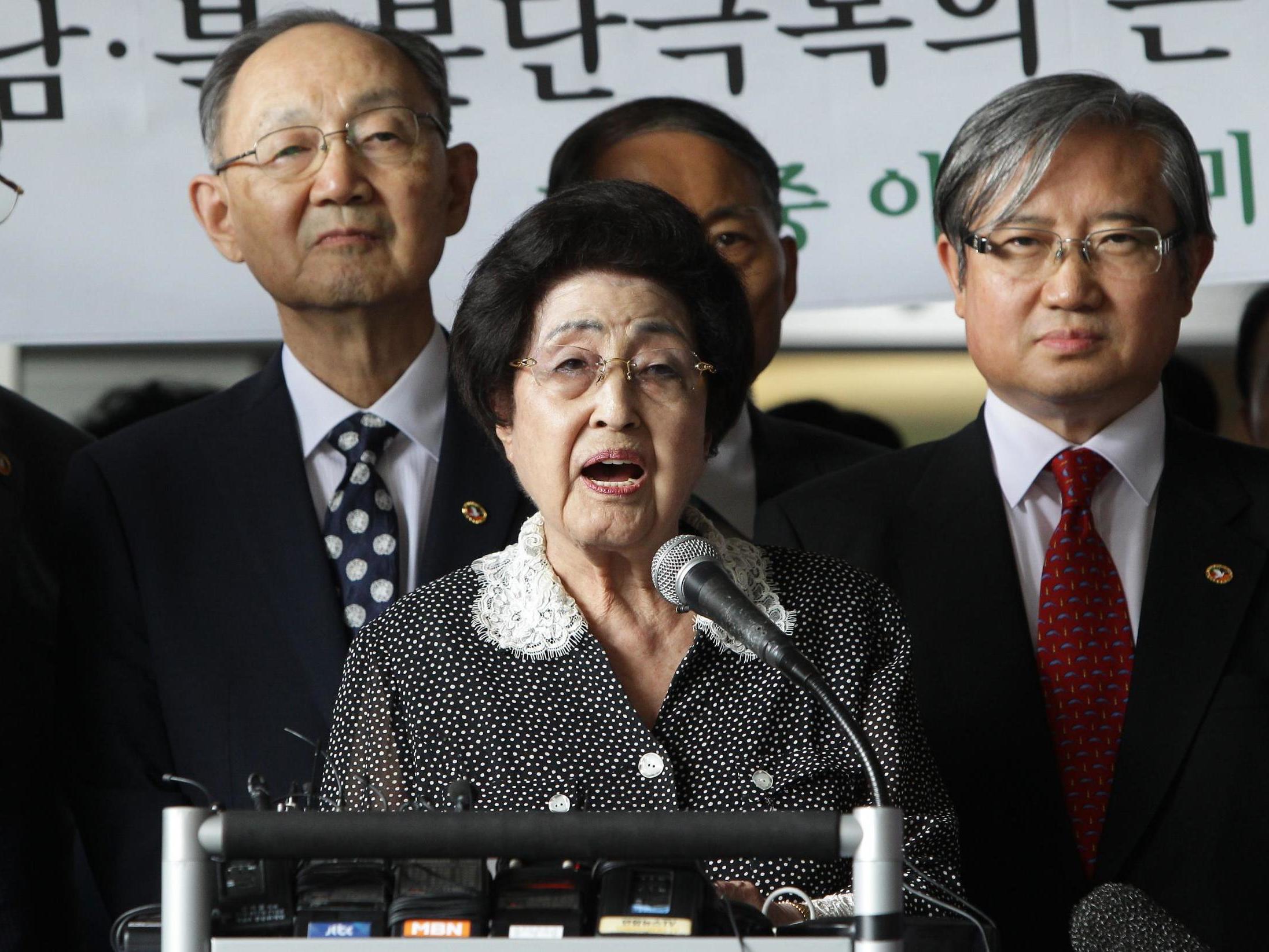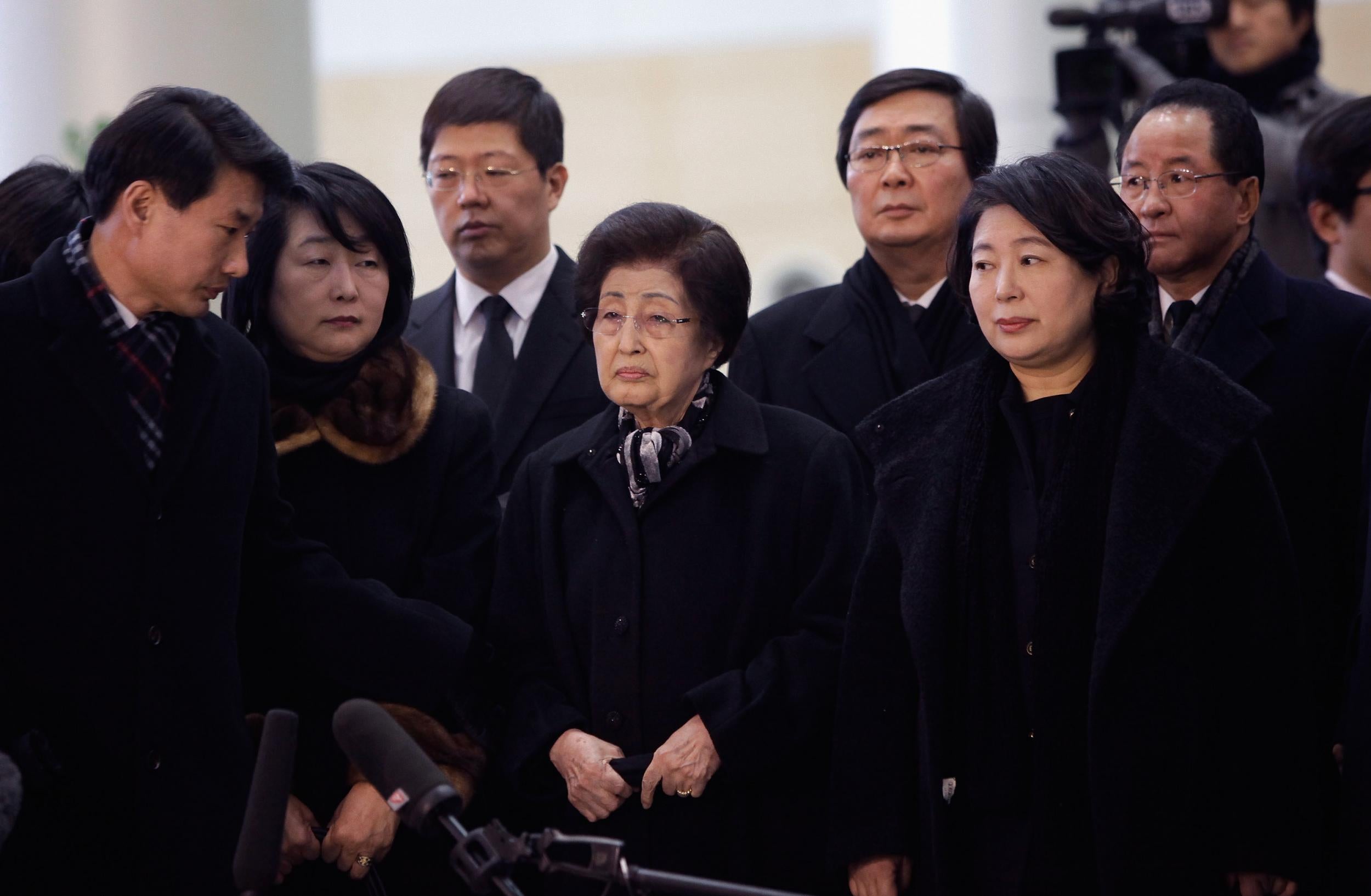Lee Hee-ho: Former South Korean first lady and women’s rights activist
The feminist campaigner protested against the practice of taking concubines and played a vital role in inter-Korean politics as the wife of Kim Dae-jung

Your support helps us to tell the story
From reproductive rights to climate change to Big Tech, The Independent is on the ground when the story is developing. Whether it's investigating the financials of Elon Musk's pro-Trump PAC or producing our latest documentary, 'The A Word', which shines a light on the American women fighting for reproductive rights, we know how important it is to parse out the facts from the messaging.
At such a critical moment in US history, we need reporters on the ground. Your donation allows us to keep sending journalists to speak to both sides of the story.
The Independent is trusted by Americans across the entire political spectrum. And unlike many other quality news outlets, we choose not to lock Americans out of our reporting and analysis with paywalls. We believe quality journalism should be available to everyone, paid for by those who can afford it.
Your support makes all the difference.As wife and aide to South Korea’s liberal president Kim Dae-jung, Lee Hee-ho had a front row seat at one of the most important international summits of the 21st century, when North and South Korea met across the table for the first time since the 1950s.
The feminist activist, who stood by her husband throughout his years in exile and under house arrest, played a vital role in the inter-Korean politics of his time in office, earning the respect of North Korea’s then-President Kim Jong-il.
Lee, who has died aged 96, was born in Seoul during the Japanese occupation of Korea. She followed her undergraduate studies at Seoul National University with a master’s degree in sociology in the United States. Returning to South Korea in 1958, Lee taught at Ewha Woman’s University.
She also threw herself into the campaign for women’s rights. In particular, she protested against the practice of taking concubines, which was still common in South Korea at the time.
Having previously made up her mind not to marry, Lee was 40 when she wed her husband, Kim Dae-jung in 1962. It was his second marriage. Their life together was not easy, as the dissident Kim faced a death sentence, exile and several assassination attempts over the next two decades.
After Kim became president in 1997, Lee was still right by his side as he campaigned for Korean reunification and democracy with his “sunshine policy”. As first lady, Lee visited North Korea several times. The historic inter-Korea summit of 2000, where Lee and Kim met President Kim Jong-il, was the first since the 1950-53 war.

It won Kim the Nobel Peace Prize. While president, Kim also founded the Kim Dae Jung Peace Center, to promote inter-Korean relations and world peace. Lee would serve as the foundation’s chair.
Alas, the great progress Kim and Lee made was sent into reverse by subsequent conservative administrations. However, when Lee was widowed in 2009, North Korea sent a delegation of six to her husband’s funeral as a mark of respect for his efforts at reconciliation.
In 2011, Lee returned the gesture, travelling to North Korea to offer her condolences after the death of Kim Jong-il. South Korea did not send an official delegation from the administration of then-president Lee Myung-bak, but while Lee was there, she met with new North Korean leader Kim Jong-un and said of the trip, “I hope our visit will contribute to improving inter-Korean ties.”
Four years later, at Kim Jong-un’s personal invitation, 92-year-old Lee visited Pyongyang again and was given a tour of children’s hospitals and day care centres. Her 18-strong delegation included former minister of culture Kim Sung-jae but no serving members of the South Korean government. Lee did not see Kim Jong-un during the four-day visit but upon her return, she said, “As I held the hands of the innocent children, I thought to myself that we must not pass down the pain of (inter-Korean) division to future generations.”
After recent diplomatic turbulence in the wake of US president Donald Trump’s summit with Kim Jong-un, the marking of Lee’s death offered another opportunity to bridge the gap between the North and South. Kim Jong-un sent his condolences in the person of Kim Yo-jong, his younger sister, who delivered flowers to the border village of Panmunjom. Meanwhile, Lee was mourned with a five-day state funeral in Seoul.
Lee is survived by her son, Kim Hong-gul.
Lee Hee-ho, women’s rights activist and former first lady of South Korea, born 21 September 1922, died 10 June 2019
Subscribe to Independent Premium to bookmark this article
Want to bookmark your favourite articles and stories to read or reference later? Start your Independent Premium subscription today.
Join our commenting forum
Join thought-provoking conversations, follow other Independent readers and see their replies
Comments